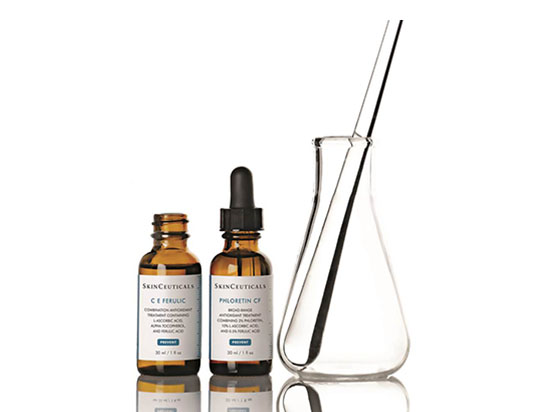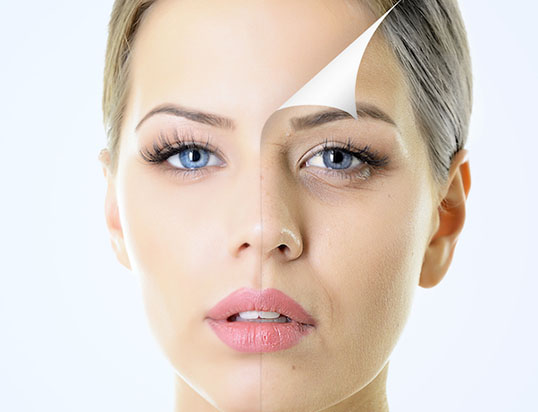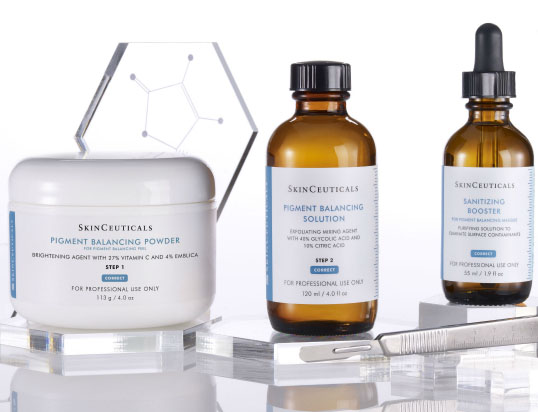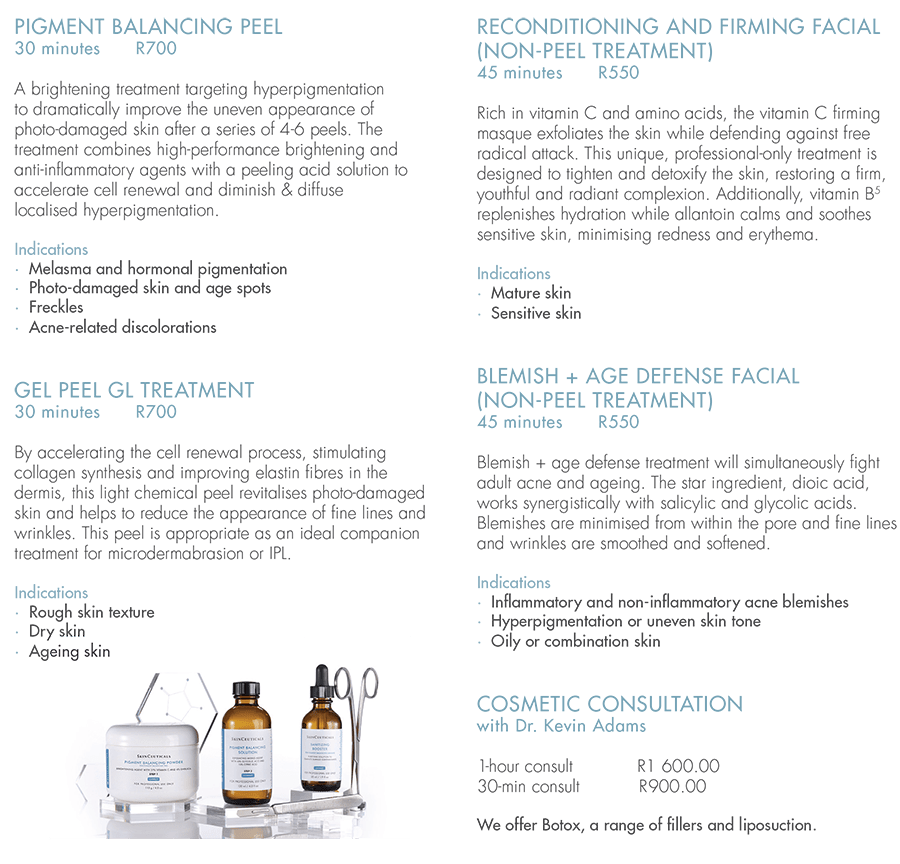Skin Rejuvenation & Resurfacing
- Home
- Skin Rejuvenation & Resurfacing
-
Overview
What is a Chemical Peel?
A chemical peel uses a chemical solution to smooth the texture of your skin by removing the damaged outer layers. Although chemical peels are used mostly on the face, they can also be used to improve the skin on your neck and hands. A chemical peel is one of the least invasive ways to improve the appearance of your skin. Sun exposure, acne, or just getting older can leave your skin tone uneven, wrinkled, spotted or scarred. It is helpful for those individuals with facial blemishes, wrinkles and uneven skin pigmentation. The precise formula used may be adjusted to meet each patient's needs.
-
Treatment Menu
-
Before Treatment
What you should know before having a chemical peel
Chemical solutions are carefully applied to your skin to improve the texture by removing damaged outer layers. The chemicals used are phenol, trichloroacetic acid, and alphahydroxy acids. The formula used by your doctor will be adjusted to meet your particular needs.
There are three types of chemical peels:
Light chemical peel - Subtle improvements at first, but that healthy glow will increase with more treatments
Medium chemical peel - Your skin will be noticeably smoother and fresher looking
Deep chemical peel - Results are dramatic, but recovery takes the longestBe prepared to discuss:
- · Your goals
- · Medical conditions, drug allergies, medical treatments
and smoking history - · Current medications, vitamins, herbal supplements,
alcohol, tobacco and drug use - · Previous surgeries
Your surgeon may also:
- · Evaluate your general health status and any pre-existing
health conditions or risk factors
- · Discuss likely outcomes and any risks or potential
complications
-
Risks and Safety
Important facts about the safety and risks associated with chemical peel treatments
You should understand that all chemical peels carry some risks and uncertainties. A chemical peel is usually a very safe procedure when performed by a qualified and experienced plastic surgeon. It happens infrequently, but you could develop an infection or scarring from chemical peels. For people with certain skin types, there is a risk of developing a temporary or permanent colour change in the skin either lightening or darkening.
Use of hormone medications or a family history of brownish discoloration on the face may increase the possibility of developing abnormal pigmentation. If you have suffered from cold sores (herpes) in the past, there is a risk of reactivation. Be sure to ask your doctor to prescribe medication to try and avoid an outbreak. Inform your physician if you have a history of keloids (scar tissue overgrowth) or any unusual scarring tendencies.
Be sure to ask questions:It’s important to understand all aspects of your chemical peel. It’s natural to feel some anxiety, whether it’s excitement for your anticipated new look or a bit of stress. Don’t be shy about discussing these feelings with your plastic surgeon.
-
SkinCeuticals
SkinCeuticals - Advanced Skincare Backed By Science
SkinCeuticals is born from decades of skin cancer research that led to pivotal breakthroughs in antioxidantsand. It is made in the USA, and used by dermatologists, plastic surgeons, and medi-spas for daily homecare and to complement aesthetic procedures.
For more information watch the video below:



